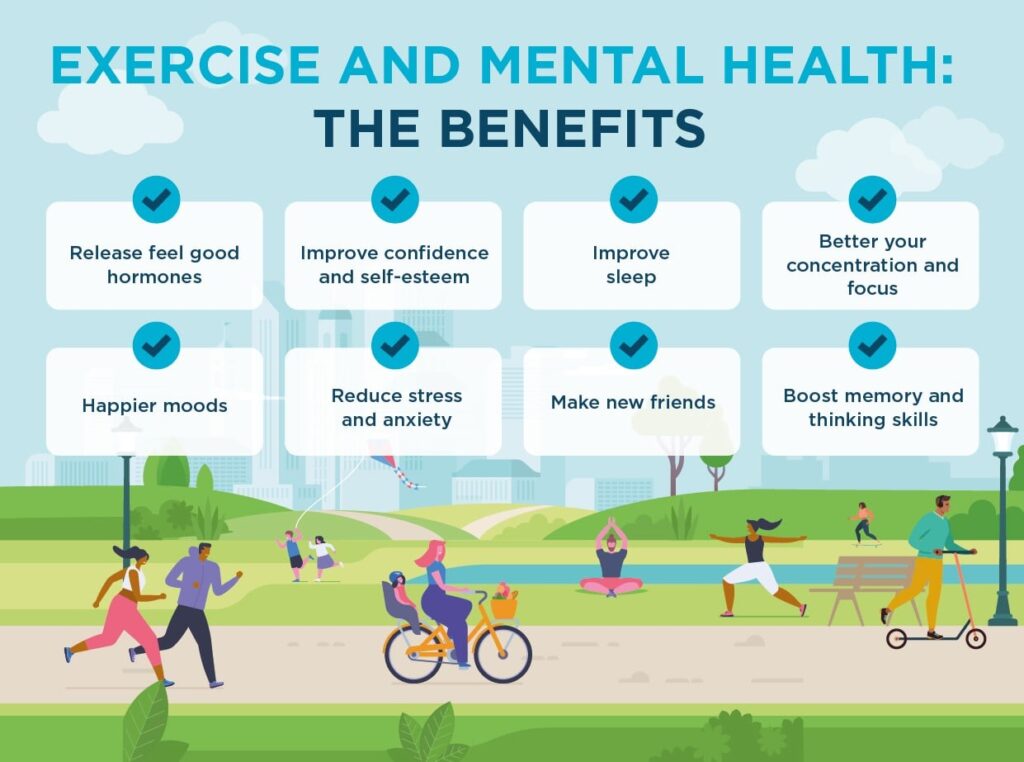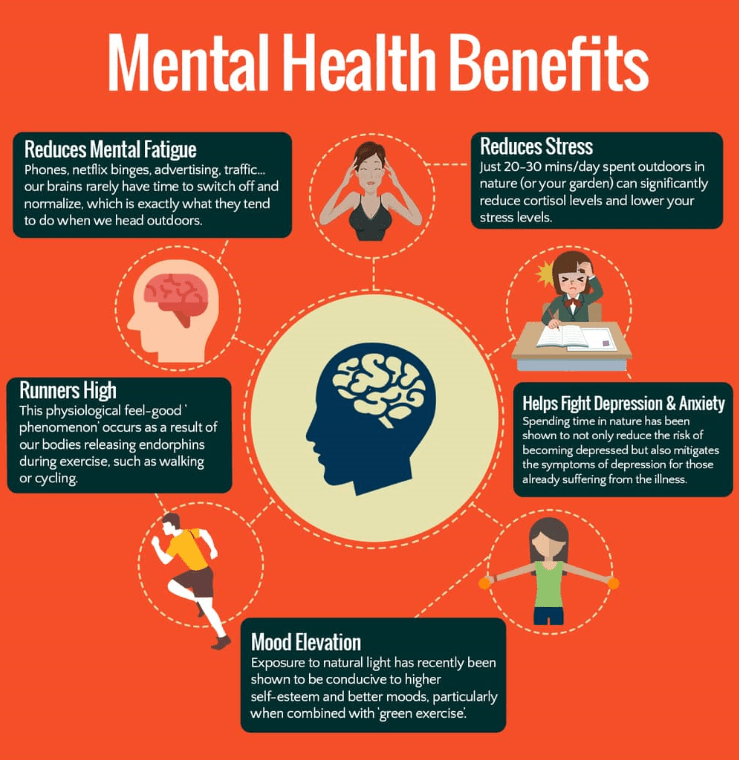In today’s fast-paced and demanding world, managing depression has become an increasingly crucial aspect of maintaining overall mental health. The good news is that exercise has emerged as a powerful tool in combating this debilitating condition, offering a natural and effective way to boost your mental well-being. By engaging in regular physical activity, you can not only improve your physical fitness but also enhance your mood, reduce stress levels, and increase your overall sense of happiness. In this article, we will explore the incredible role that exercise plays in managing depression, offering you valuable insights and practical tips on how to incorporate this beneficial practice into your daily routine. So, get ready to discover the wonders of exercise as a natural remedy for depression, and take the first step towards a healthier and happier life.
The Role of Exercise in Managing Depression: Boosting Mental Health Naturally

Understanding Depression
Depression is a common mental health disorder that affects millions of people worldwide. It is characterized by feelings of sadness, hopelessness, and a loss of interest or pleasure in activities. Depression can have a significant impact on daily life, making it difficult to function and enjoy daily activities.
What is Exercise?
Exercise is any physical activity that requires effort and elevates heart rate. It can include activities such as walking, running, swimming, cycling, and strength training. Exercise has long been recognized as an essential component of overall health and well-being, but its impact on mental health, specifically in managing depression, is receiving increasing attention.

The Link Between Exercise and Mental Health
There is a strong connection between exercise and mental health, particularly in managing depression. Regular physical activity has been found to positively impact brain chemistry, reduce stress, improve cognitive function, and enhance sleep quality. These effects can contribute to overall mental well-being and provide a natural way to manage depression symptoms.
Benefits of Exercise for Depression
Exercise offers numerous benefits for individuals living with depression. Firstly, exercise has been shown to improve mood by promoting the release of endorphins, which are chemicals in the brain that help elevate mood and produce feelings of happiness. This natural mood boost can provide relief from depressive symptoms and improve overall well-being.
Furthermore, exercise has been found to reduce anxiety levels, which often coexist with depression. Physical activity can serve as a distraction from intrusive thoughts and worries, providing a temporary respite from anxious feelings.
Additionally, exercise increases energy levels by boosting blood flow and oxygen supply to the muscles, making individuals feel more alert and invigorated. This enhanced energy can counteract the fatigue often experienced by those with depression, leaving them feeling more motivated and capable of engaging in daily activities.
Exercise also plays a role in fostering enhanced self-esteem and body image. Engaging in physical activity can lead to improvements in physical appearance, weight management, and overall fitness, which can boost self-confidence. Furthermore, exercise provides an opportunity to set and achieve goals, improving one’s sense of accomplishment and self-worth.
Lastly, exercise can help improve social connections for individuals with depression. Participating in group exercise classes, team sports, or even finding workout buddies can promote social interactions and combat feelings of loneliness and isolation, which are common in those experiencing depression.

Types of Exercise That Can Help Manage Depression
Several different types of exercises can aid in managing depression. Aerobic exercise, such as running, swimming, or cycling, has been found to be particularly effective in improving mood and reducing depressive symptoms. These activities increase heart rate, promoting the release of endorphins and improving cardiovascular health.
Strength training exercises, which involve using resistance to strengthen muscles, can also be beneficial for managing depression. These exercises improve muscle tone and strength, enhancing overall physical fitness and self-confidence.
Mind-body exercises like yoga and Pilates combine physical movement with mental focus and deep breathing. These activities promote relaxation, reduce stress, and improve mindfulness, which can be particularly helpful for individuals with depression.
How Much Exercise is Needed to Manage Depression?
While there is no definitive answer to how much exercise is needed to manage depression, general recommendations suggest aiming for at least 150 minutes of moderate-intensity aerobic activity or 75 minutes of vigorous-intensity aerobic activity per week. This can be divided into smaller sessions throughout the week.
However, it is important to personalize the exercise routine to individual needs and preferences. Some individuals may find that they benefit from shorter, more intense workouts, while others may prefer longer, more moderate sessions. The key is to listen to your body and find a routine that feels sustainable and enjoyable.
It can be challenging to start and maintain an exercise routine, especially when dealing with depression. Overcoming barriers to regular exercise, such as lack of motivation or low energy levels, can be achieved by starting small and gradually increasing the frequency and duration of exercise. It is essential to set realistic goals and be patient with oneself throughout the process.

Exercise as a Complementary Treatment for Depression
Exercise can be a powerful complementary treatment for depression when combined with other approaches, such as medication or therapy. Many individuals find that exercise enhances the effects of antidepressant medications and can alleviate side effects like weight gain or sexual dysfunction. It is crucial to speak with a healthcare professional about incorporating exercise into a comprehensive treatment plan.
Exercise can also be an effective adjunct to therapy for depression. Physical activity can serve as an outlet for emotional expression, provide a sense of accomplishment, and improve self-esteem. Moreover, exercising with a therapist or support group can create a supportive and motivating environment for individuals seeking therapy for depression.
In addition to medication and therapy, individuals may explore various complementary treatments for depression, such as mindfulness or relaxation techniques. Exercise can be seamlessly integrated into these practices, enhancing their effectiveness and providing a holistic approach to managing depression.
Exercise as a Preventive Measure for Depression
Exercise not only helps manage depression but can also serve as a preventive measure against its onset. Engaging in regular physical activity has been found to reduce the risk of developing depression. The physiological and psychological benefits of exercise can protect against the development of depressive symptoms.
Exercise has also shown promise in preventing the recurrence of depression in individuals who have experienced past episodes. By incorporating exercise into a healthy lifestyle, individuals can reduce the likelihood of future depressive episodes and maintain optimal mental well-being.

Considerations When Starting an Exercise Routine for Depression
While exercise can be a valuable tool in managing depression, there are some considerations to keep in mind when starting an exercise routine. It is essential to consult with a healthcare professional before beginning any new exercise regimen, particularly if there are pre-existing health conditions or concerns.
Furthermore, it is crucial to choose activities that are enjoyable and sustainable for the long term. Finding a form of exercise that brings joy and fits into one’s lifestyle increases the likelihood of adhering to an exercise routine and reaping the mental health benefits.
Tips for Incorporating Exercise into Your Depression Management Plan
Incorporating exercise into a depression management plan can be challenging, but with some tips and strategies, it can become more manageable and enjoyable:
- Set realistic goals: Start with small, achievable goals and gradually increase the intensity and duration of exercise.
- Find activities you enjoy: Explore various forms of exercise and identify activities that bring you joy and make you feel energized.
- Create a schedule: Set aside specific times for exercise and make it a non-negotiable part of your routine.
- Build a support network: Seek out workout buddies or join exercise classes to foster a sense of community and motivation.
- Track progress: Keep a record of your exercise sessions and note any improvements in mood, energy levels, or overall well-being. This can serve as positive reinforcement and keep you motivated to continue.
In conclusion, exercise plays a crucial role in managing depression and boosting mental health naturally. It offers numerous benefits, including improved mood, reduced anxiety, increased energy levels, enhanced self-esteem, and improved social connections. By incorporating exercise into a depression management plan, individuals can take an active role in their mental well-being and find relief from depressive symptoms. Remember to personalize your exercise routine, start small, and consult with a healthcare professional to create a safe and effective plan.